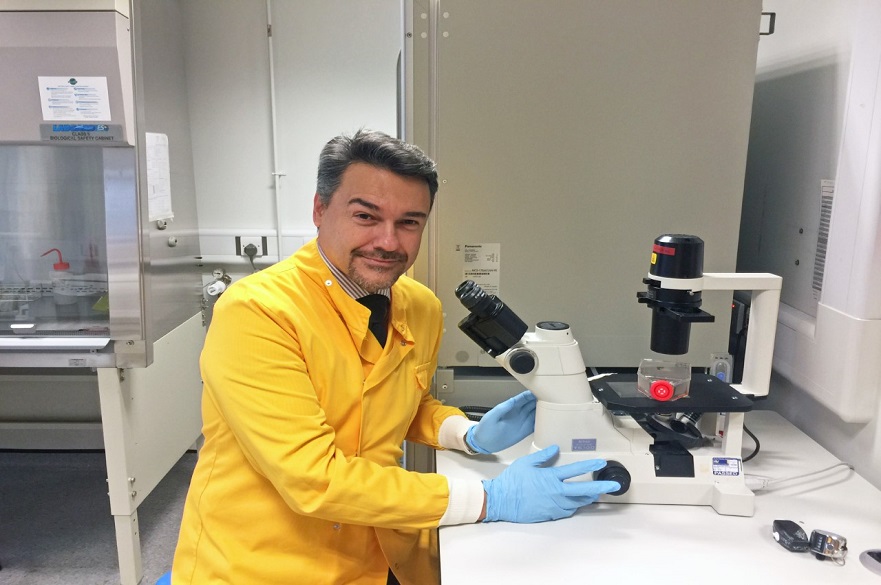John Van Geest Cancer Research Funding
Imagine a world where everyone who gets cancer survives. A world where families are no longer torn apart by a disease that currently affects one in two of us in our lifetime. In this world, the diagnosis is simple; doctors know the best treatment, and don’t need invasive procedures.
By Laura Mcadam | Published on 5 March 2021
Categories: Alumni;

This is the world the John van Geest Cancer Research Centre (JvGCRC) are trying to create. The Centre focuses on immunotherapy — using the body’s own immune system to fight cancer, without the need for chemotherapy. It’s the next frontier in cancer research, and one of this century’s biggest breakthroughs in oncology.
Immunotherapy is a promising field, but there are a lot of unanswered questions. Scientists don’t yet know which tumours respond to immunotherapy. Or how long to treat patients for. At the Centre, scientists carry out work that answers these questions. Only by understanding can we start to develop targeted treatments and create a world where cancer is no longer a killer.
As a small, agile centre, JvGCRC have a huge advantage over larger cancer research centres. They have a fast and visible impact on cancer research, and pharmaceutical companies trust them to deliver results at speed. Their work on Acute Myeloid Leukaemia (AML) is a clear example of this. The life expectancy of patients with AML, without treatment, is four months, so there is a real and urgent need to develop a cure for this deadly disease. The Centre have worked with the biopharmaceutical company MacroGenics to identify a gene signature which predicts both resistance to chemotherapy and how the patient might respond to immunotherapy.
The Centre only began their interaction with MacroGenics in 2018 and over this short time progress has been incredible: there are already 200 patients enrolled on a clinical trial. It means the drug can move into the clinic at great speed, and hopefully improve the survival rate of patients with this disease in a short space of time.
Donations are vital to the work of the Centre, but, the pandemic has severely impacted the amount of research funding available and community fundraising has all but stopped as a result of social distancing.
If you would like to support the Centre with a donation, please visit here.
With your support we can get as close as possible to ensuring 100% of patients with all cancers survive.